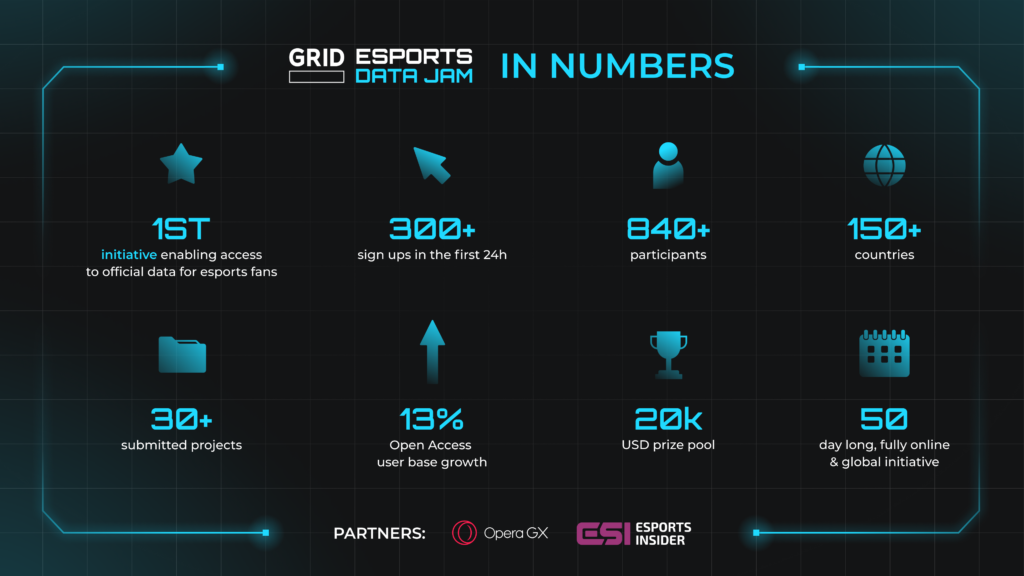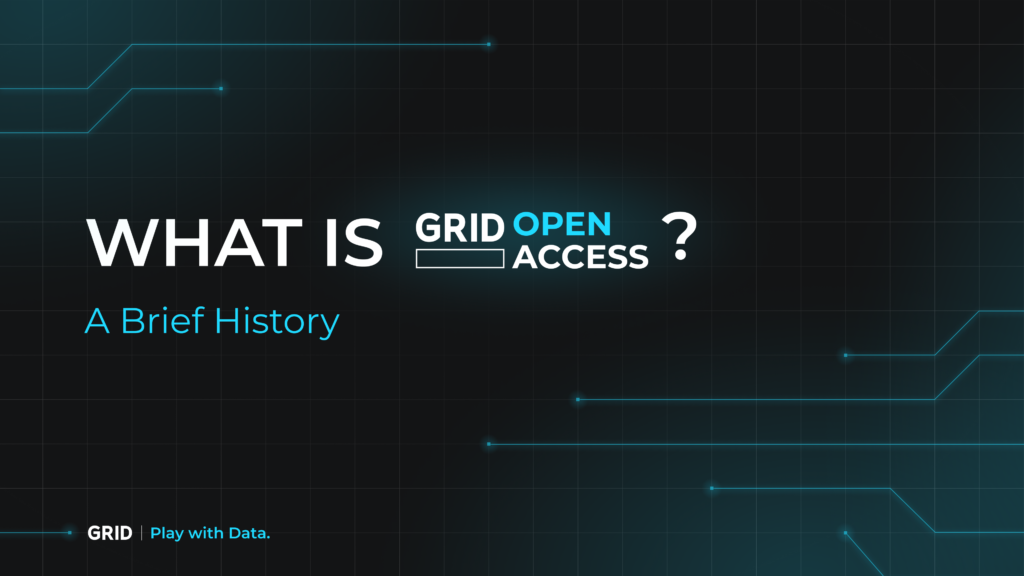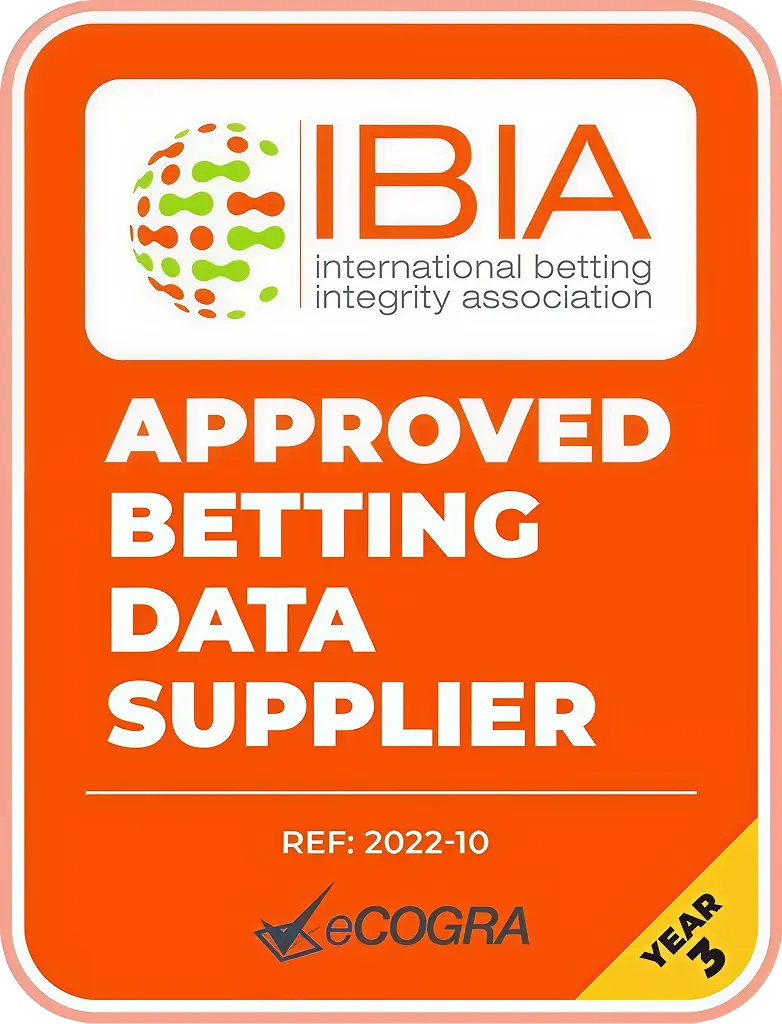GRID was born to unlock the potential of official esports data as a resource for the industry.
For over five years, GRID has explored esports data’s use-cases with publishers, esports teams, bookmakers, media services and the communities surrounding them all — all to pioneer the esports data frontier and create opportunities for those who venture with us.
In early 2022, GRID Open Access (originally called the GRID Open Platform) was unveiled specifically to give community developers and creators access to official match data for the first-time-ever — unlocking the potential for even more users to Play with Data.
We’re proud to say that there hasn’t been anything like Open Access targeted to the esports community before or since its launch. Read on to learn what you need to know about the product, its history and a glimpse into its future.
What is Open Access?
GRID Open Access is a community-focused platform offering users complimentary access to official esports match data, offering a taste of the data resources that GRID’s partner network uses to power their businesses.
We offer this data in an effort to help create new careers, power innovative products and enable passion projects and research.
When we talk about esports data, we’re referencing both in-game data points, such as a player action capturing an objective; and also out-of-game data points, such as which players are playing on which esports team and when they are playing next.
Currently, Open Access allows its users to access official historical esports match data (as opposed to live esports match data, available only to commercial partners) from select Counter-Strike 2 and Dota2 tournaments.
What’s the backstory of Open Access?
Open Access was unveiled to the world in February 2022, through an exclusive interview with The Esports Journal. In the interview, GRID CTO Chris King and Founder & CEO Moritz Maurer explained how Open Access was the next step toward achieving GRID’s vision of sustainable growth throughout the entire ecosystem.
By connecting rights holders with their communities, a mutually-beneficial empowerment is created that can help drive gaming innovation for players, fans and viewers. It’s a way to expand engagement with a user’s favorite titles by allowing them to interact and build with data, in a way that best suits everyone.
“Various members of the GRID team would have benefited greatly from the accessibility of quality, official game data,” Chris said in the ESJ interview, “be it within a previous professional capacity or to fulfill the dream of building their esports project.”
There are plenty of unofficial (mostly free) third-party metrics tools available for fans and builders, as well as official (mostly paid) tools using platforms’ APIs — for instance. GRID Open Access is like a first-step to test product or service idea using official match data (similar to a closed beta) without needing to commit to a commercial package right away.

Is there an Open Access community?
Last year, in partnership with Opera GX and Esports Insider, GRID hosted the first-ever Esports DataJam, inviting the developer community (840+ registered participants!) to come together digitally and build projects with Open Access data.
Dominika Szot, GRID’s Head of Marketing, discussed the event in an interview with Esports Insider, “The thing that I was the most surprised by was not the participation — in the end at GRID we strongly believe in data being a driver for innovation — but the diversity of participants who applied and who signed up and how global the initiative turned out to be.
“We had people from over 150 countries with various levels of understanding of game data and various skill sets. This diversity was incredible and shows that esports data can be a universal, global entry point to developing transferable skill sets.”
Read about the winning projects from the first GRID DataJam.
How do I start my Open Access journey?
GRID Open Access is a first-of-its-kind initiative to support the development of esports ecosystem sustainability by enabling access to a selection of esports match data that top-tier esports teams generate.
Sign up for Open Access and stay tuned for an exciting update in the coming weeks!


